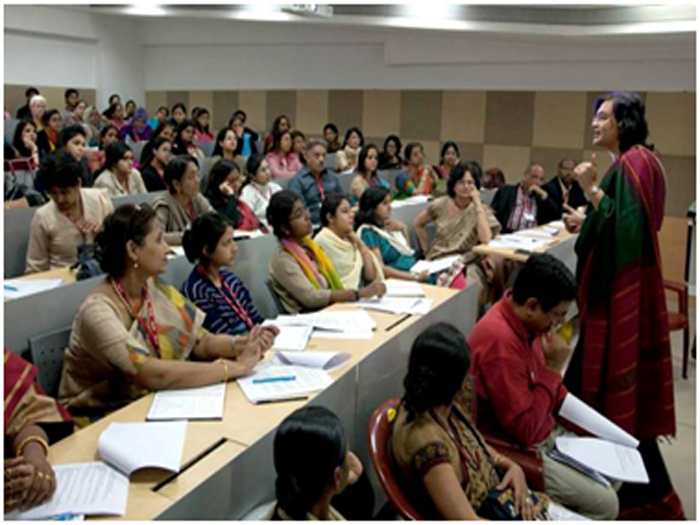International Conference on Dyslexia
' Breaking Through Dyslexia' hosted an international conference over three days from 11th to 13th December 2015 in Kolkata. I had the privilege to attend and represent School at this high profile conference which was inaugurated by the honourable chief minister of Bengal, Ms. Mamta Banerjee.
The conference covered all aspects of research relating to dyslexia including identification, theoretical views, intervention and support for students, inclusion in schools for remedial education and other related issues.
The conference titled DARE to Win stands for dyslexia awareness and remedial efforts. It aims to increase awareness of this disability and measures that need to be taken to help children reach their optimum potential.
Leading academicians and researchers were invited to share their experiences and the latest developments in this field. The speakers included:
Charles Haynes: Professor and Clinical Supervisor, Department of Communication Science and Disorders (CSD) MGH Institute of Health Professions in Boston, Massachusetts.
Lydia Soifer: Founder and Director of The Soifer Center for Learning and Child Development and Assistant Clinical Professor of Pediatrics and Faculty Member, Early Intervention Training Institute, Albert Einstein College of Medicine, New York.

Kate Garnett: Professor of Special Education, Hunter College New York City, New York.
Eileen Marzola: Teachers College, Columbia University, New York City, New York.
Vandana Saxena: Associate Professor, Central Institute of Education (CIE), Department of Education, University of Delhi.
Renu Singh: Professor, Jamia Millia Islamia University, New Delhi.
A summary of the sessions and topics discussed is as below:
1. Charles Haynes: Kindergarten Identification of Grade School Reading and Writing Skills.
This session outlined -
What does it mean to read?
Simple view of reading (and writing)
Factors involved in reading /writing
Early predictors of basic literacy skills
Implications for intervention
1. Kate Garnett: Math assessment in grades KG to 6
2. Lydia Soifer: A cognitive linguistic perspective on oral/aural language development.
This session discussed cognition and language, executive functions and reading comprehension. Cognition is a general concept embracing the various ways of knowing: perceiving, remembering, imagining, conceiving, judging and reasoning. Cognitive development involves the methods a child uses to organise, store and retrieve information for problem-solving and generalisation.
3. Charles Haynes: Micro discourse strategies for comprehension and expression enhancing oral/written skills.
4. Kate Garnett: Looking under the covers - Math and LD students.
5. Lydia Soifer: Transitions to literacy built on oral language.
6. Eileen Marzola: Monitoring basic math facts and math calculations.
7. Charles Haynes: Strategies for supporting childrens early language and pre-literacy skills.
8. Renu Singh: Charting pathways to successful inclusion.
9. Kate Garnett: Math materials, methods and mindsets -Targeting resources for grade 6-12 students with learning disabilities.
10. Eileen Marzola: Math word problem- solving grades KG to 6.
Math difficulties or Dyscalculia is a major area of concern and is often not understood. At this conference, Kate Garnett and Eileen of the USA, addressed the needs of children at both the primary and secondary levels, covering this topic extensively.
11. Lydia Soifer: Assessing oral and aural language in order to understand literacy difficulties.
Reading comprehension is frequently very difficult for students with dyslexia. They are challenged by word recognition, they may forget a word even though they have seen it several times. They may spend so much time and effort in sounding words out that often they lose the meaning of the text or they may need to read a passage over and over to fully understand what is being said. Lydia Soifer suggested ways to overcome these difficulties in her talk.
The conference helped teachers and parents to form an understanding of what is required to ensure students have a solid foundation of reading skills. Reading comprehension was listed as one of the five most important skills for developing reading skills. The programme also provided guidelines to help teachers and parents approach problems relating to math or Dyscalculia.
The conference was very informative and helped me assimilate many things which can be planned ahead, put into practice and implemented at our School.
Ms. Parvinder Kaur.













